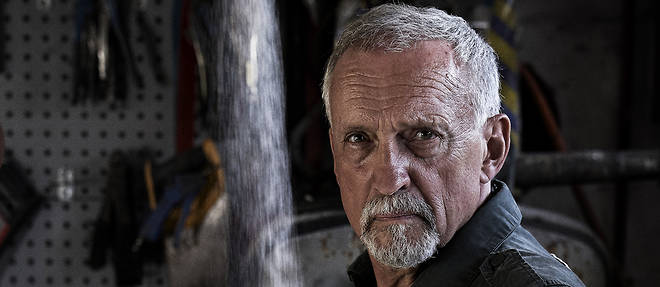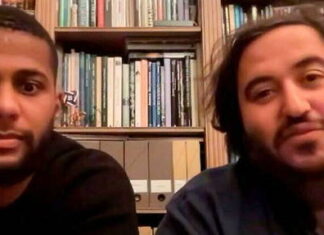This is an investigation which, like its title, Salt, is not lacking. A new blow, the ninth, from the lively Danish Jussi Adler-Olsen, which will only stop Department V investigations at 10. That of unclassified cases – understand insoluble and, above all, which no longer interest anyone. The team? A bizarre, downgraded tribe of Copenhagen police personnel: grumpy old Carl Morck, Syrian cleaner Assad, hilarious Rose, and tall Asparagus Gordon. Which launches on the trail of an explosion having caused, thirty years earlier, a carnage in a garage. Based on a pile of salt found under a car, the “salt pile/suspicious death” lead, as incongruous as it is, leads to the unexpected. And especially ready to laugh, even yellow, as always with Adler-Olsen, who mixes acerbic humor, cynicism and desire for social justice pushed to its climax… Enjoyable.
Salt, by Jussi Adler-Olsen, translated from Danish by Caroline Berg (Albin Michel, 556 pages, 22.90 euros).
The Killer: 1982 Five minutes after the call, rescuers arrived on the lawn to find the apocalyptic scene that would forever brand their retinas with a hot iron. Six lifeless bodies lay around a smoking crater, in a stench that the smell of burnt flesh to that of ozone still wafting through the air after the lightning. “Stand back!” shouted a paramedic to a horrified group of students running from campus across the road to see the spectacle. His colleague tugged at his sleeve. “Come on, there’s nothing more to do here, Martin, but look over there!” he said, pointing to an old man a little further on, kneeling in the sodden grass. “Why were they all together?” And why did lightning fall on them and not on a tree? moaned the old man when they joined him. Although it was pouring rain and his coat clinging to his body like a wet towel, nothing existed for him except what had just happened before his eyes. Martin turned his head towards the university, where sirens and flashing lights announced the arrival of new patrol cars and several ambulances. He’s going to get sick,” his teammate said. Martin narrowed his eyes. Near a hedge of trees, through the curtain of the pouring rain, he noticed two women crouching next to a puddle of water that was visibly widening. “Come on!” Quick ! he heard them shout. Martin grabbed his satchel and ran to join them. “I feel like she’s breathing,” one of them whispered, her hand under the neck of the seventh victim. “She must have been thrown by the explosion,” said the other in a trembling voice. You’re going to save her, aren’t you? “Martin gently lifted the frail body from the mud, while behind him echoed the voices of his colleagues making the observation that there was nothing more to be done: the lightning had killed the six individuals who were huddled together the others under the storm. Martin settled the woman in a safe side position and felt her pulse, which was slow and weak, but apparently regular. As he got up to ask for a stretcher, the girl’s body began to shake. Two deep breaths swelled her ribcage, she propped herself up on her elbows and looked around. “Where am I?” she said, her eyes bloodshot. – You are in Fælledparken, in Copenhagen, answered Martin. You were struck by lightning. – Lightning? He nodded. “And the others? – Did you know them?” he asked. – Yes, we were together. They are dead ? Martin hesitated for a moment, then nodded. “Anyone?” He watched her face. He expected to see a reaction of shock and grief, but the wrinkles across his forehead expressed a very different feeling. “Perfect,” she said calmly. And despite her pain, she added with a sardonic smile, “If I survived this, with God’s help, I could survive anything.” »
Consult our file: Le coin du polar


















